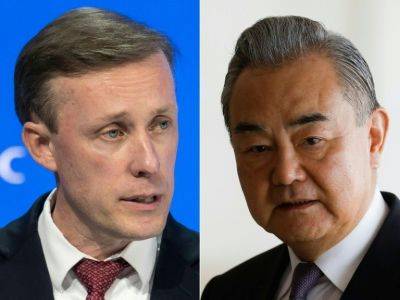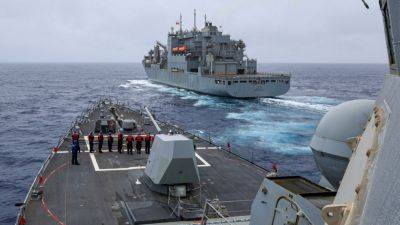Civil war to semiconductors: Taiwan facts as island votes
TAIPEI, Taiwan — Taiwan is voting for a new president and parliament on Saturday in an election that will be closely watched around the world.
The winner will lead the democracy of 23 million people as it manages bellicose threats from China, which claims the island as its own.
Here are some key facts about self-ruled Taiwan, which has its own currency, flag, military and government but is not recognised as an independent state by the United Nations or most countries.
The rift between China and Taiwan dates back to China's civil war, which erupted in 1927 between communist and nationalist forces.
Defeated by Mao Zedong's communists, the nationalist Kuomintang (KMT) of Chiang Kai-shek fled to Taiwan and claimed rulership of all of China -- just as the mainland claimed Taiwan.
Taiwan's official name remains the Republic of China, while the mainland is the People's Republic of China.
After decades of authoritarian government, Taiwan transformed into a vibrant democracy in the 1990s, and a distinct Taiwanese identity has emerged.
The current ruling Democratic People's Party, led by President Tsai Ing-wen, regards Taiwan as a de facto sovereign nation, not a part of China.
But Beijing insists the island will one day be absorbed by the mainland, and in a New Year's Eve speech, President Xi Jinping said China would "surely be reunified".
The UN switched recognition from Taiwan to Beijing in 1971, with other countries and international groups soon following suit.
Washington switched to the People's Republic of China in 1979, and today fewer than 15 states, mostly small nations in Latin America and the Caribbean, grant Taiwan full diplomatic recognition.
Beijing has kept Taiwan out of international bodies such as the World Health Organization and leans heavily on governments to stop any moves towards recognition.
After Lithuania allowed Taipei to open a de facto embassy in Vilnius in 2021 using the name Taiwan, China slapped trade restrictions on the Baltic state, though they were partially lifted last year.
But Taiwan enjoys many of the trappings of a full diplomatic relationship with the United States in practice, and Washington is bound by an act of Congress to supply







